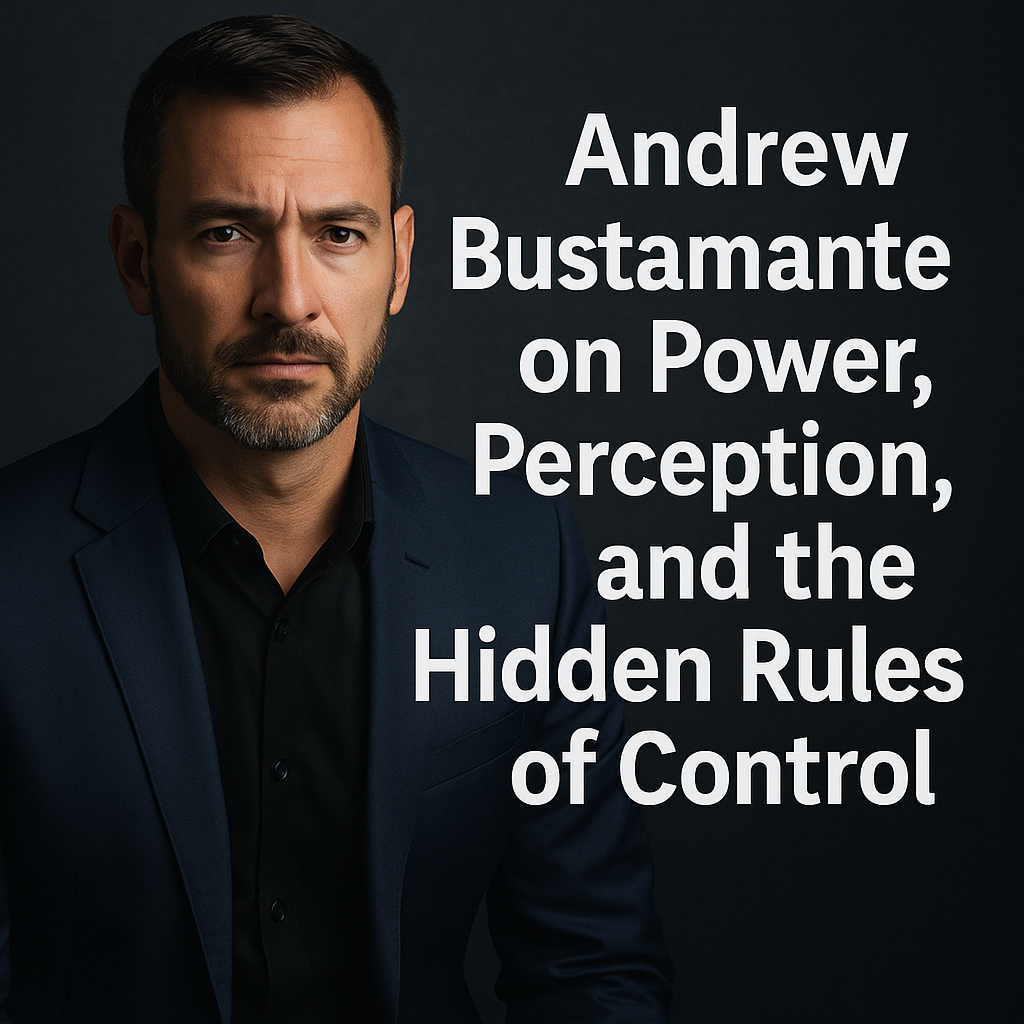Andrew Bustamante on Power, Perception, and the Hidden Rules of Control
This isn’t just spycraft—it’s real-world insight into how nations, companies, and individuals seize and maintain control.-Rafael Benavente

The Power Playbook: Andrew Bustamante on Control, Perception, and the Battle for Influence Update
By Rafael Benavente
In the world of intelligence, it’s not weapons or money that shape global events—it’s perception. In a riveting interview, former CIA covert officer Andrew Bustamante breaks down the mechanics of power, showing how narratives, control, and emotional manipulation dictate outcomes far more than force ever could.
This isn’t just spycraft—it’s real-world insight into how nations, companies, and individuals seize and maintain control.
“The Game Is Power, Not Truth”
Bustamante’s central message is simple but uncomfortable: “Perception is more important than truth.” In the intelligence world—and increasingly in politics, business, and media—the truth is only useful if it serves a strategic goal. If it doesn’t, it’s ignored or reshaped.
Whether it’s in warfare, elections, or brand management, perception can overpower facts, especially when the public is confused, emotional, or misinformed. That’s why intelligence agencies, marketing firms, and even political operatives obsess over narrative control. They don’t need you to believe the truth—they need you to believe what helps them win.
The Three Things People Want: Money, Time, or Purpose
According to Bustamante, all human motivation boils down to one of three things:
- Money – the pursuit of comfort, safety, and resources
- Time – the freedom to live life on your own terms
- Purpose – a sense of meaning, belonging, or legacy
If someone offers you one of these things—or threatens to take it away—they have leverage. And those who know how to exploit these levers can control individuals, groups, or even entire populations.
This concept is the cornerstone of both espionage and marketing. Every ad, every speech, every campaign is designed to appeal to one of these desires.
How Spies and Leaders Use Control
Bustamante explains that intelligence agencies use control not through brute force, but through systems and perceptions. They:
- Control access to information
- Shape what’s believable
- Limit alternatives
The goal is not to force someone to do something—it’s to make them believe they chose it freely.
This tactic is visible in everything from foreign policy to consumer tech. Whether you’re selecting a presidential candidate or buying a phone, your “choices” are often designed by those who understand how to frame your environment.
Distraction Is the Most Powerful Tool
“Give them bread and circuses,” Bustamante says, echoing a tactic as old as Rome.
Governments and corporations know that distracted people are easier to control. When your mind is occupied with entertainment, social media, outrage, or constant crisis cycles, you become less critical, more reactive, and more dependent.
That’s why every power player has a distraction strategy:
- Politicians use culture wars
- Corporations use celebrity scandals
- Media cycles use manufactured outrage
The more distracted you are, the easier it is to implement unpopular policies, suppress dissent, or hide deeper problems.
Why Power Is About Access and Narrative
In the CIA, power wasn’t about guns or brute force—it was about access and narrative control. Who has the information? Who decides what gets shared? Who sets the story?
Bustamante recalls how entire operations were designed not to kill targets, but to change their minds, flip their loyalties, or use them as tools in a larger plan.
In politics, business, and tech, the same applies. The people who shape what we believe—through headlines, algorithms, or institutions—have more power than armies.
Final Thoughts: Reclaiming Control in a Manipulated World
Bustamante’s message isn’t just about espionage—it’s about how to see the system we live in. He encourages us to ask hard questions:
- Who benefits from what I believe?
- Am I reacting emotionally, or thinking strategically?
- What am I being distracted from?
Ultimately, the goal isn’t paranoia—it’s awareness. In a world where perception can be more powerful than reality, awareness is your best defense.
Credits
Special thanks to Andrew Bustamante, former CIA officer and founder of EverydaySpy, for providing these deep and eye-opening insights. Subscribe to his channel for more behind-the-scenes analysis of intelligence, power, and global influence.
By Rafael Benavente
